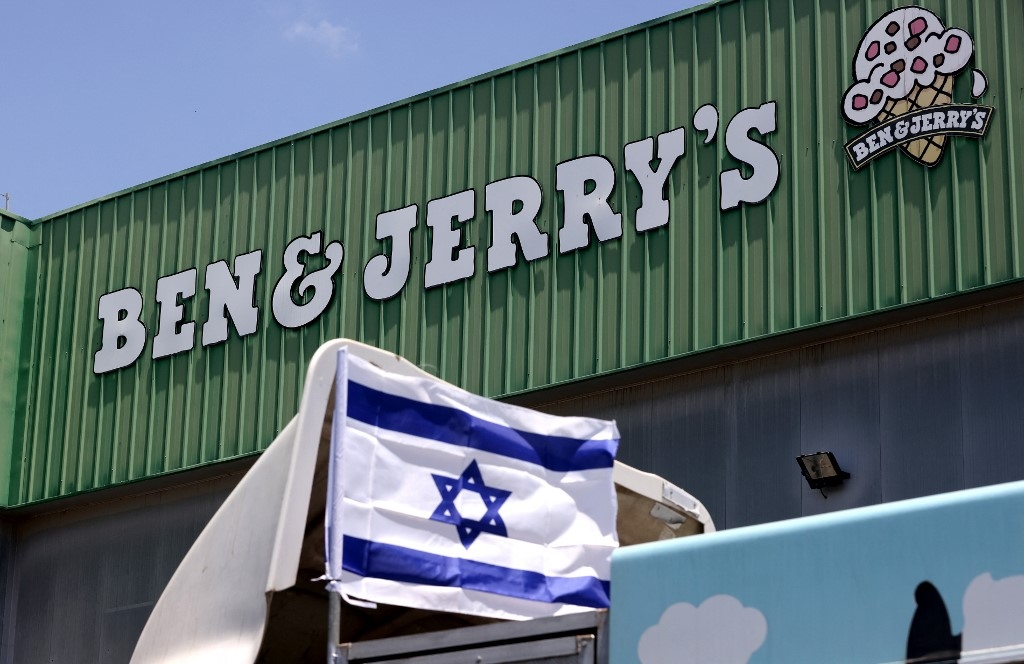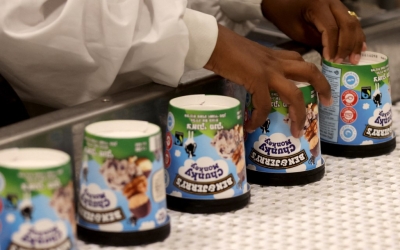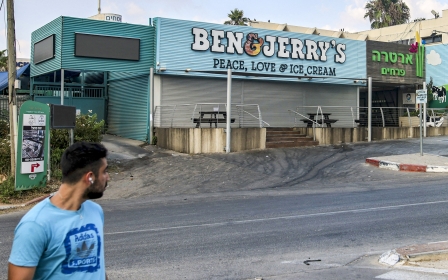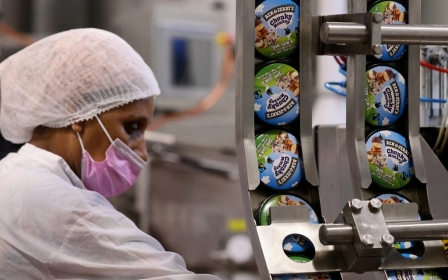US: Arizona divests from Ben & Jerry's parent company

The US state of Arizona has divested all public funds from the parent corporation of Ben & Jerry's over the ice cream company's decision to halt sales in Israeli settlements in the West Bank and East Jerusalem.
Arizona Treasurer Kimberly Yee announced on Tuesday that the state was selling off all its investments in Unilever, stating that the Ben & Jerry's decision was in violation of Arizona law.
"Arizona will not do business with companies that are attempting to undermine Israel's economy and blatantly disregarding Arizona's law," Yee, who is running for governor in 2022, said in a press release.
"As Arizona's chief banking and investment officer, I stand with Israel, and I will not allow taxpayer dollars to go toward antisemitic, discriminatory efforts against Israel."
The treasurer said that the state's investments - bonds and commercial paper - in Unilever had been reduced from $143m in June to $50m, and will drop to zero by 21 September.
The decision is the most significant action taken at the state level in the US against the ice cream maker.
Since the ice cream company announced plans to stop selling its products in Israeli settlements, which many global bodies consider to be illegal under international law, it has been threatened with punitive measures in the US, with critics accusing the company of acting out of anti-Jewish sentiments.
In its announcement, Ben & Jerry's explicitly stated that it was not boycotting Israel, but only ceasing sales in Palestinian territories occupied illegally under international law, stating "the sale of ice cream in Occupied Palestinian Territory is inconsistent with our values".
Unilever told Middle East Eye that it would not be commenting further on its business with Israel, and referred to Ben & Jerry’s original announcement on the decision.
US states threaten Ben & Jerry's
Despite its announcement and clarification, the states of Florida and Texas threatened the company with sanctions, saying that Ben & Jerry's was in violation of their anti-Boycott, Divestment and Sanctions (BDS) laws.
The BDS campaign is a Palestinian-led, non-violent initiative that encourages individuals, nations and organisations to censure Israel's consistent violations of international law and human rights standards through various boycotts.
Aside from Arizona, a number of states including New Jersey, Maryland, and Texas are known to have investigated whether state-level anti-BDS laws are applicable over the ice cream company's move.
Illinois is also currently assessing whether to divest from Unilever. In late July, it gave the conglomerate 90 days for Ben & Jerry's to reverse its decision on Israeli settlements.
In July, a coalition of progressive Jewish groups sent a letter to 33 governors calling on US states not to penalise Ben & Jerry's and Unilever over its decision, saying that boycotting Israeli settlements was not a form of antisemitism, but rather a way to encourage a two-state solution - a policy long supported by both Democrats and Republicans.
They also highlighted the difference between Israel and its occupied territories - a differentiation "rightly recognized and maintained in various ways by official US policy and the constitutionally-protected actions of private individuals and organizations".
Penalising companies for choosing to support a political position "does nothing but generate further attention and sympathy" for the BDS movement, the groups said.
Israel has meanwhile launched a special task force aimed at lobbying politicians and groups in the US to pressure Ben & Jerry's to walk back its decision, according to a classified Israeli foreign ministry cable seen by the US news site Axios.
Middle East Eye delivers independent and unrivalled coverage and analysis of the Middle East, North Africa and beyond. To learn more about republishing this content and the associated fees, please fill out this form. More about MEE can be found here.





